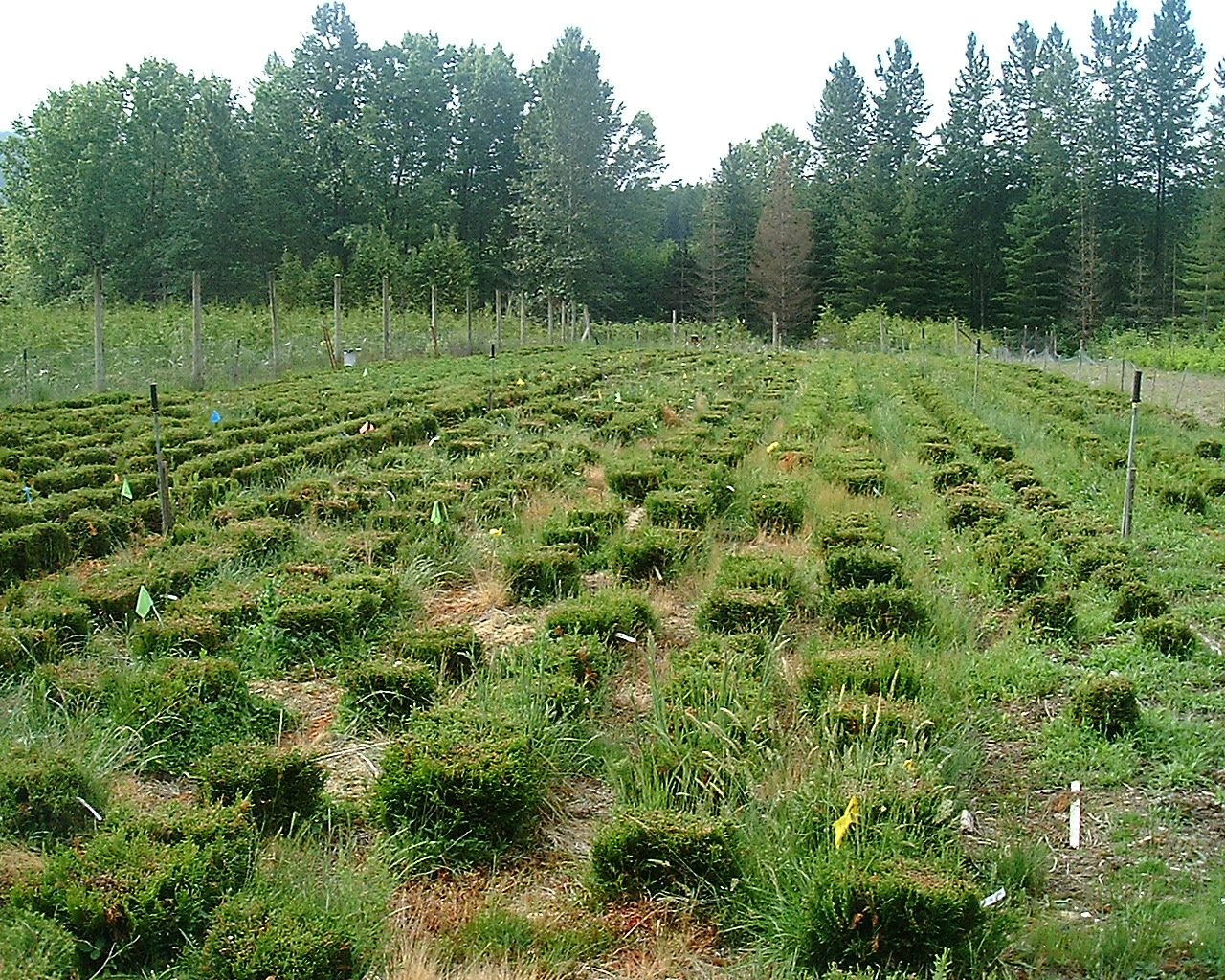Yellow cypress tree breeding program
Yellow cypress is a member of the cypress family and is known for its naturally durable heartwood.
A breeding program was initiated in the late 1980s with approximately 5000 clones established in several field trials. Selections have been made from these trials using the best clones from the best families, at age 12 based on growth and tree form. They are currently used as donor stock for cuttings for reforestation.
Advanced generation breeding has been put on hold. As clones from the clonal program age and no new clones are being tested, interest has shifted to siting orchards in manageable natural environments conducive to flowering. Successful cone crops with viable seed have been produced at operational levels in low elevation coastal fog belt ecosystems such as:
- Port McNeill
- North Vancouver Island
- Jordan River & Cowichan Lake Research Station, South Vancouver Island
Currently, improved orchards are being planned on these sites using clones selected from the breeding program and from Western Forest Products trials. Genetic Worths up to 20 percent volume are projected to be similar to clonal production due to low non-additive genetic variances.
References
- Adams RP, Russell JH, Hunter G, Fairhall TA, Dillman K, Corbet M. 2014. The foliage terpenoids of Callitropsis nootkatensis: Comparison of oils from cultivated and natural trees. Phytologia 96(2): 135-148.
- Baltunis BS, Russell JH, Van Niejenhuis A, Barker J, El Kassaby YA. 2013. Genetic analysis and clonal stability of two yellow cypress clonal populations in British Columbia. Silvae Genetica 62 (4-5): 173-187.
- Massah N, Wang J, Russell JH, Van Niejenhuis A, El-Kassaby YA. 2010. Genealogical Relationship among Members of Selection and Production Populations of Yellow Cedar (Callitropsis nootkatensis [D. Don] Oerst.) in the Absence of Parental Information. J. Heredity 101(2): 154-163.
- Russell JH, Krakowski J. 2012. Geographic variation and adaptation to current and future climates of Callitropsis nootkatensis populations. Can. J. For. Res. 42: 2118-2129.
- Russell JH, Costa e Silva J, Baltunis BS. 2015. Multisite genetic parameter estimates from a Callitropsis nootkatensis clonally replicated diallel study. Can. J. For. Res. 45(6): 689-697.

Yellow cypress rooted cutting hedges at Cowichan Lake Research Station.
